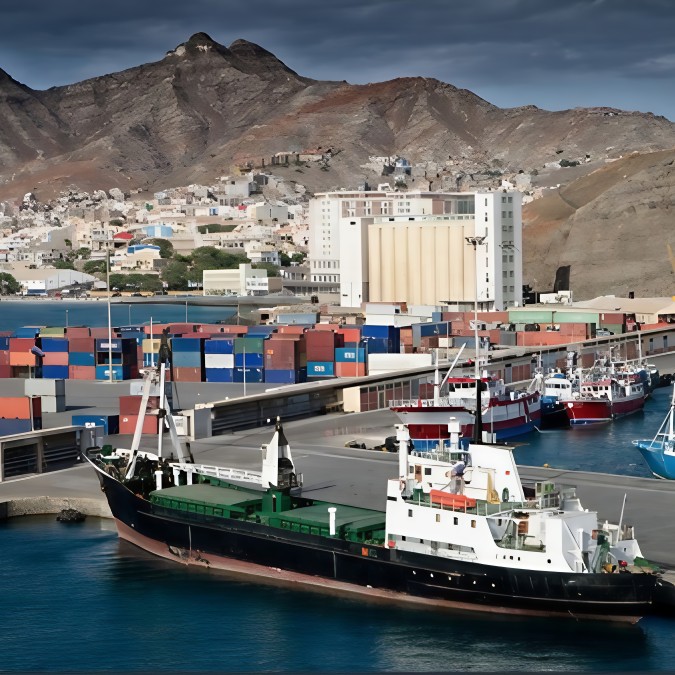
News
Cabo Verde Elevates Trade Integrity with ASYCUDAWorld Valuation Control

Praia, March 2025 Cabo Verde implemented a significant customs modernization measure with the launch of the Valuation Control module, a sophisticated module within UNCTAD’s ASYCUDAWorld platform designed to align declared import values with prevailing market benchmarks.
The move reflects Cabo Verde’s commitment to sound economic governance, reinforcing its adherence to WTO valuation standards and GATT principles. In doing so, it joins a growing number of nations adopting automated solutions to ensure that customs duties are calculated on fair, consistent and transparent grounds.
Precision in Practice
At the core of ASYCUDAWorld Valuation Control (ASYVAL) is the Transaction Value (TV) method, which uses historical data to determine whether a declared value falls within a reasonable tolerance band. Declarations that deviate from expected norms are automatically flagged for further scrutiny. This dual-path approach supports both pre-clearance controls and post-clearance audits, enhancing operational efficiency without compromising rigour.
In its initial phase, the module was deployed across 12 product categories. The result was telling: an average increase of 2.49% in customs revenue, indicative of the extent to which under-declarations had previously gone undetected.
A Flexible, Data-Driven Solution
ASYVAL’s strength lies not only in its technical robustness but also in its adaptability. Customs authorities can configure the system to address undervaluation, overvaluation, or both depending on prevailing policy priorities. By leveraging historical import data, the system enables valuation by reference to comparable goods, down to very specific characteristics and descriptions where needed, such as in the case of vehicles.
This structured yet dynamic approach not only deters manipulation but also i promotes fairness for compliant traders, enabling faster clearance where valuation falls within acceptable ranges.
Regional Leadership Through Reform
Cabo Verde’s adoption of ASYVAL mirrors successful implementations across a diverse set of economies, including Afghanistan, Côte d’Ivoire, the Democratic Republic of Congo, Moldova, Mauritania, Togo, Uganda, and Zambia. The module has proven its worth across geographies and governance models, offering a scalable solution to strengthen revenue mobilization and institutional integrity.
For Cabo Verde, this reform goes beyond revenue. It signals a modern, rules-based approach to trade administration, anchoring public trust and creating a more predictable environment for commerce. As other countries look to streamline customs while safeguarding national interests, ASYVAL offers a practical example of effective digital innovation.
Praia, March 2025 Cabo Verde implemented a significant customs modernization measure with the launch of the Valuation Control module, a sophisticated module within UNCTAD’s ASYCUDAWorld platform designed to align declared import values with prevailing market benchmarks.
The move reflects Cabo Verde’s commitment to sound economic governance, reinforcing its adherence to WTO valuation standards and GATT principles. In doing so, it joins a growing number of nations adopting automated solutions to ensure that customs duties are calculated on fair, consistent and transparent grounds.
Precision in Practice
At the core of ASYCUDAWorld Valuation Control (ASYVAL) is the Transaction Value (TV) method, which uses historical data to determine whether a declared value falls within a reasonable tolerance band. Declarations that deviate from expected norms are automatically flagged for further scrutiny. This dual-path approach supports both pre-clearance controls and post-clearance audits, enhancing operational efficiency without compromising rigour.
In its initial phase, the module was deployed across 12 product categories. The result was telling: an average increase of 2.49% in customs revenue, indicative of the extent to which under-declarations had previously gone undetected.
A Flexible, Data-Driven Solution
ASYVAL’s strength lies not only in its technical robustness but also in its adaptability. Customs authorities can configure the system to address undervaluation, overvaluation, or both depending on prevailing policy priorities. By leveraging historical import data, the system enables valuation by reference to comparable goods, down to very specific characteristics and descriptions where needed, such as in the case of vehicles.
This structured yet dynamic approach not only deters manipulation but also i promotes fairness for compliant traders, enabling faster clearance where valuation falls within acceptable ranges.
Regional Leadership Through Reform
Cabo Verde’s adoption of ASYVAL mirrors successful implementations across a diverse set of economies, including Afghanistan, Côte d’Ivoire, the Democratic Republic of Congo, Moldova, Mauritania, Togo, Uganda, and Zambia. The module has proven its worth across geographies and governance models, offering a scalable solution to strengthen revenue mobilization and institutional integrity.
For Cabo Verde, this reform goes beyond revenue. It signals a modern, rules-based approach to trade administration, anchoring public trust and creating a more predictable environment for commerce. As other countries look to streamline customs while safeguarding national interests, ASYVAL offers a practical example of effective digital innovation.




